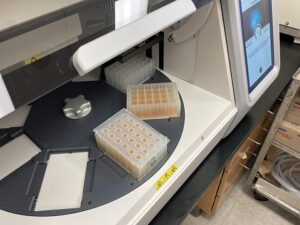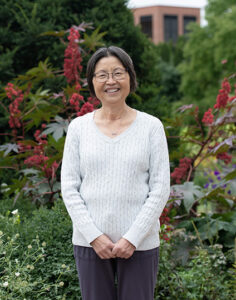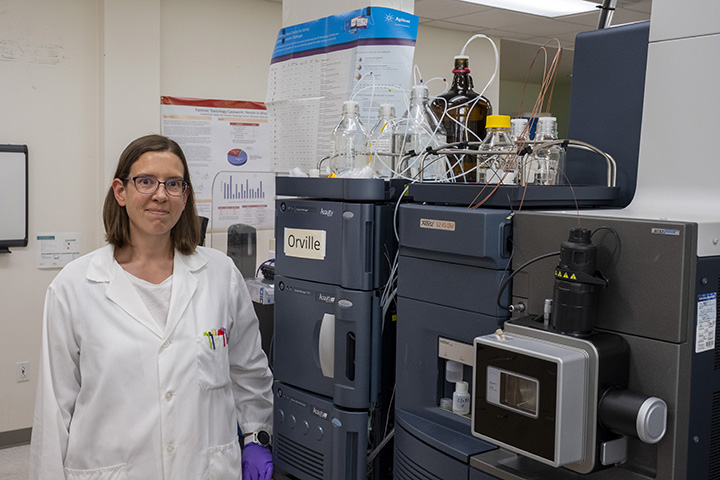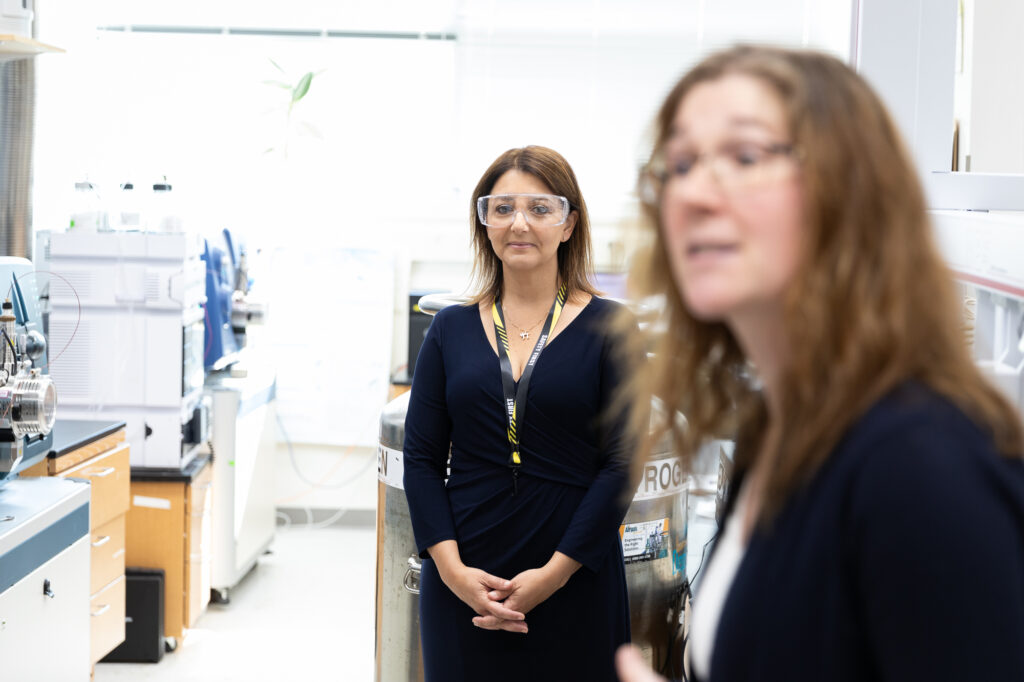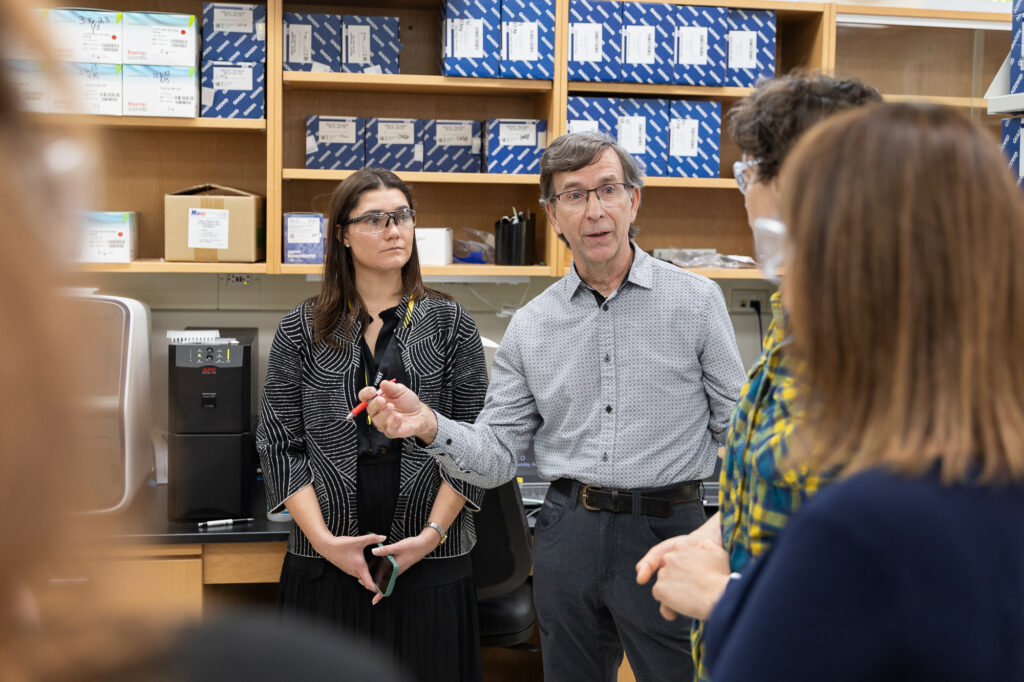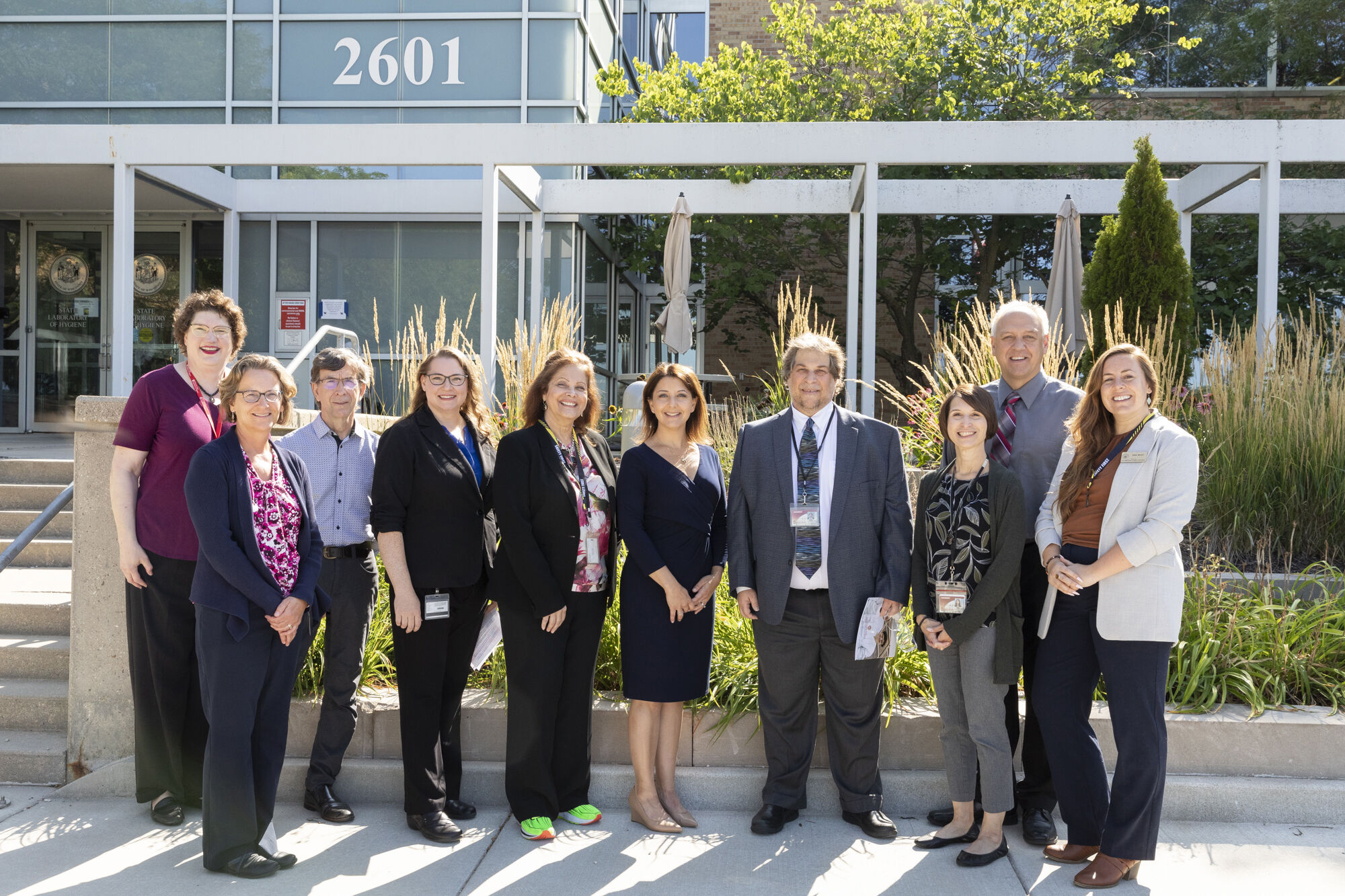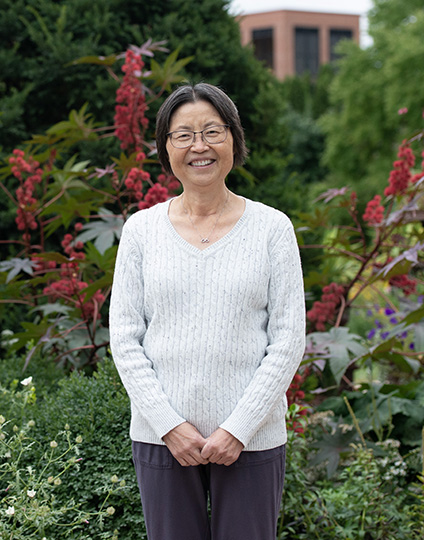
Dr. Mei Baker, UW Professor of Pediatrics and Director, Wisconsin State Laboratory of Hygiene Newborn Screening Laboratory, stands in the Allen Centennial Gardens on the University of Wisconsin-Madison campus.
The National Academies of Sciences, Engineering and Medicine has appointed WSLH Newborn Screening Laboratory Director and UW Professor of Pediatrics Dr. Mei Baker to its ad hoc Committee on Newborn Screening: Current Landscape and Future Directions.
Dr. Baker’s appointment lasts through September 2025.
According to the Academies website, the committee –
… will conduct a study examining the current landscape of newborn screening (NBS) systems, processes, and research in the United States and consider sustainable adoption of screening for new conditions using new technologies. The report will provide both short-term options to strengthen existing NBS programs and establish a vision for the next 5-15 years. …
The committee’s final report will describe (a) short-term options that could be implemented at the state and/or federal level over the next 2-3 years to help strengthen existing NBS programs and address the current challenges facing state programs, and (b) a vision for the future of NBS and a roadmap for how to implement and achieve that vision over the next 5-15 years. The report will include options for how to implement longitudinal follow-up data collection to improve understanding of the impact of NBS on infant health outcomes (including morbidity and mortality, and quality of life for screen-positive infants). The committee will consider the resources required for implementation, such as changes to the current NBS system that will need to occur, the feasibility of implementing the future vision, and the challenges and barriers that may arise when trying to implement the roadmap.
